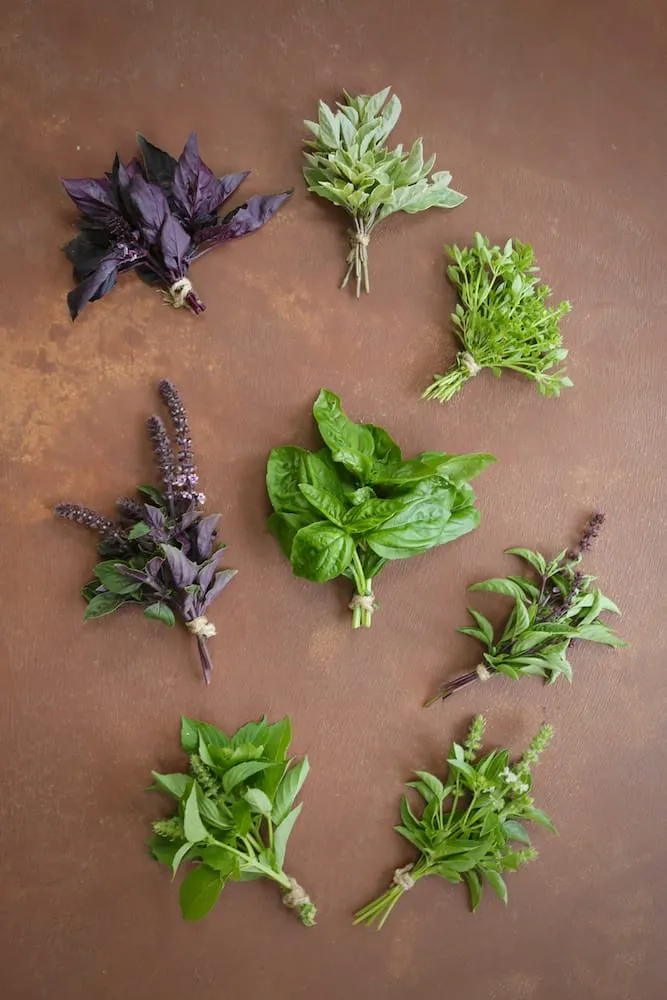Basil

brings prosperity. classically strewn on the floor or on window sill of a new shop or business. gives courage in times of strife, eases pain of mourning, and helps release pent up tension and anger. traditional aphrodisiac. brings vitality, increased libido, and improved sperm health and motility
aids digestions and reduces gas and nausea. helps children’s upset tummies
circulatory system nervous system digestive system respiratory system immune system integumentary system
organ system
herbal actions
optimal preparations
type of plant
https://chestnutherbs.com/7-medicinal-herbs-for-urban-gardens


tea made with ginger (Zingiber officinale), catnip (Nepeta cataria), and basil, with a touch of added lemon juice alleviates queasiness due to motion sickness, illness, or side effects of chemotherapy.
pairs well with rosemary (rosemarinus officinales) and gotu kola (centella asiatica) for improving memory and concentration
a massage with basil-infused oil can ease mental tension, tightness, and headache
Tincture ratios and dosage: Fresh (1:2 95%) or dry (1:4 60%); either preparation 1/2 to 4/5 teaspoons (2-4 ml) three times a day Infusion ratios and dosage: Infusion of 1 teaspoon (5 ml) to 1 Tablespoon (15 ml) of the dried leaves per 1 cup (240 ml) of boiling water three times a day
a diaphoretic useful when fever is present
classic insecticide; an infusion of the leaves, when mixed with liquid castile soap, can be sprayed on other plants to deter munching bugs.
spicier varieties are helpful for respiratory congestion. basil tea is good for treating the catarrhal, phlegmy conditions and sinusitis associated with colds and flu. relaxes spasms in the lungs making it useful for asthma and whooping cough.
pinch back leaves every week
alleviates anxiety. helps allay fatigue and mental dullness. improves memory and concentration. basil’s aroma stimulates beta waves in the brain helping mental work, alertness and decision making
higher doses (medicinal strength) are contraindicated during pregnancy in both Asian & Western traditional medicine. stimulate the menses and aids in childbirth; therefore, its medicinal use in pregnancy is contraindicated.
gentle circulatory stimulant
precautions/contraindications
Nervine Carminative Antimicrobial Anti-nausea Diaphoretic Circulatory stimulant Antioxidant Emmenagogue
tea, tincture, pesto, infused oil, infused vinegar, herbal butter, herbal finishing salts
leaves
slightly warming and drying
native to tropical India and the middle east. can be grown as an annual in temperate climates during the summer. some varieties will grow as a short-lived, tender perennial in milder climates. -full sun, warm soil
herbaceous annual, sometimes perennial
parts used
herbal energetics
(Ocimum basilicum, Lamiaceae)
sweet basil
Range/Habitat preference
Work with one herb for a moon phase
Herbal Profiles














